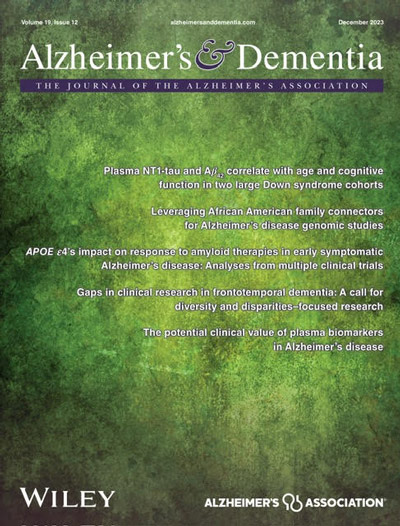摘要
引言 目前尚不清楚初级医疗机构在提供建议的痴呆症护理方面准备得如何。 方法 对美国的初级医疗机构进行了一次具有全国代表性的调查,重点是医疗服务流程,包括阿尔茨海默病和相关痴呆症(ADRD)患者的医疗服务流程。 结果 在 3498 家医疗机构中,共有 1245 家(36%)做出了回应。大多数医疗机构报告了检测 ADRD 患者(67%)和转诊患者进行诊断测试(75%)的系统。要求进行 ADRD 相关培训(45%-46%)或建立 ADRD 登记册(29%)的诊所较少。在 ADRD 护理准备方面得分较高的诊所更有可能规模较小,从医疗保险获得的收入比例较高,并具备其他重要的实践能力。 讨论 初级医疗机构对 ADRD 患者的护理准备情况参差不齐。努力提高 ADRD 的准备程度,包括直接为初级保健提供充足的基础设施和资源,应成为解决诊断不均衡问题以及优化患者和护理人员旅程的优先事项。 亮点 在美国各地的初级医疗实践中发现的 ADRD 准备情况参差不齐。 医疗机构通常缺乏针对 ADRD 的登记簿和员工培训计划。 依赖医疗保险和较大的医生所有团体的 ADRD 准备程度较高。 全科医疗保健中心(FQHC)报告的 ADRD 准备程度较低,凸显出护理方面的潜在差距。 文化意识和其他支持服务与更好的 ADRD 准备程度相关。

INTRODUCTION
It is unknown how prepared primary care practices are to deliver recommended dementia care.
METHODS
A nationally representative survey of US primary care practices focused on care delivery processes, including those for patients with Alzheimer's disease and related dementias (ADRD).
RESULTS
A total of 1245 of 3498 practices (36%) responded. Most practices reported systems to detect patients with ADRD (67%) and refer patients for diagnostic testing (75%). Fewer required ADRD-related training (45%–46%) or maintained an ADRD registry (29%). Practices that scored higher on ADRD care preparedness were more likely to be smaller, receive a higher proportion of revenue from Medicare, and have other important practice capabilities.
DISCUSSION
Primary care practices have mixed preparedness to care for patients with ADRD. Efforts to boost ADRD preparedness, including providing adequate infrastructure and resources directly to primary care, should be a priority to address disparities in diagnosis and to optimize the patient and caregiver journey.
Highlights
- Mixed ADRD preparedness identified in primary care practices across the United States.
- Practices often lack ADRD-specific registries and staff training initiatives.
- Medicare-reliant and larger physician-owned groups show higher ADRD preparedness.
- FQHCs reported lower ADRD preparedness, highlighting potential gaps in care.
- Cultural awareness and other support services correlate with better ADRD readiness.

 求助内容:
求助内容: 应助结果提醒方式:
应助结果提醒方式:


